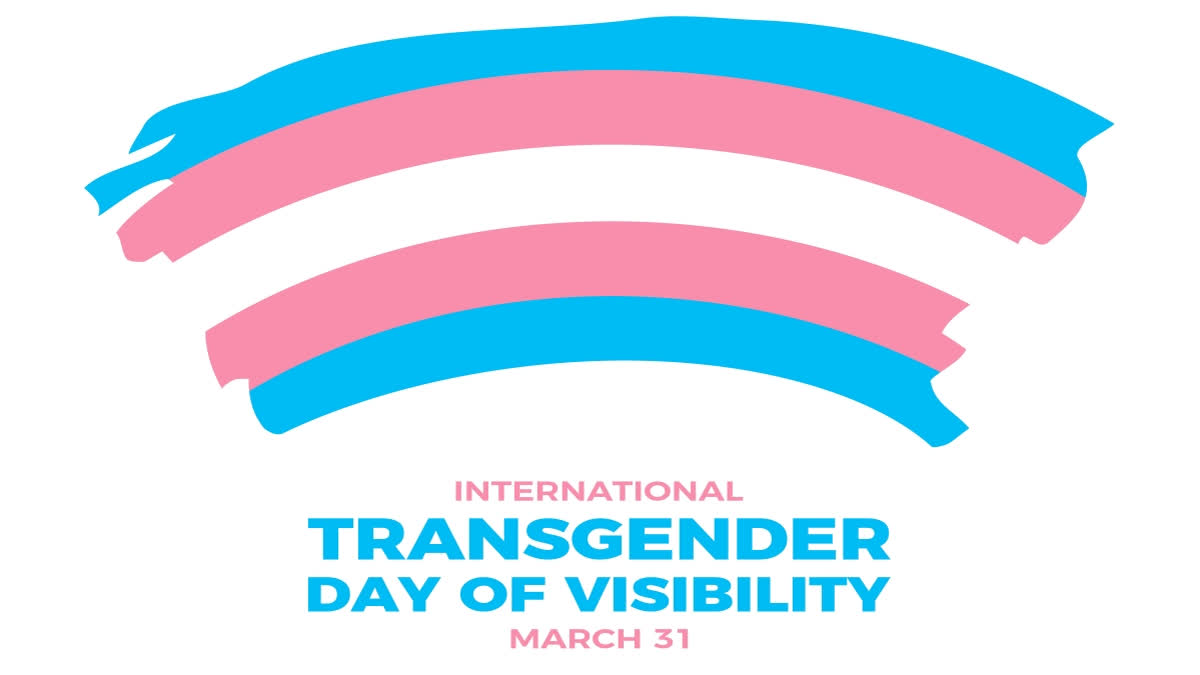Hyderabad: International Transgender Day of Visibility (TDoV), which is observed on March 31 across the globe, is dedicated to celebrating the achievements and contributions of transgender and gender-diverse people, while also creating awareness of the continuing work to eliminate discrimination and other barriers to inclusion within all aspects of society.
Foundation of TDoV
Rachel Crandall-Crocker, a dedicated Michigan-based psychotherapist and transgender activist, laid the foundation for TDoV in 2009. In a world where discrimination permeates workplaces, educational institutions and societal structures, the inception of TDoV aimed to amplify awareness of the profound hardships endured by transgender individuals simply for being true to themselves.
Genesis of TDoV
The history of TDoV stemmed from a critical observation. While Transgender Day of Remembrance solemnly observed those within the transgender community, who tragically lost their lives, there was an absence of a day dedicated to observing the resilience and vitality of transgender individuals alive. TDoV emerged as a day for visibility, empowering transgender individuals to embrace their identities proudly and unapologetically.
Evolvement of TDoV
Over the years, TDoV has evolved into a global movement, with activists in Ireland and Scotland joining the cause as early as 2014. In 2015, the power of social media was harnessed as transgender individuals worldwide participated in online campaigns, sharing personal stories and selfies to amplify the message of visibility. Through these collective efforts, TDoV garnered widespread recognition and catalysed meaningful conversations surrounding transgender rights and acceptance.
Challenges for TDoV
The challenges that the transgenders remain multifaceted and pervasive, despite increased visibility in mainstream media. From a lack of legal protections and enduring poverty to facing relentless stigma, harassment and discrimination, the transgender community struggles with systemic inequality daily. Violence against transgender individuals persists.
Transgender Persons (Protection of Rights) Act
In response to these pressing issues, Parliament enacted the Transgender Persons (Protection of Rights) Act in 2019, a legislation aimed at safeguarding the rights and welfare of transgender individuals. This pivotal legislation unequivocally prohibits discrimination against transgender persons across various spheres of life, including education, employment, healthcare and access to public accommodations.
Inspiring Transgenders in India
Joyita Mondal, India's first transgender judge, exemplifies resilience and determination, overcoming adversity to pursue a career in law and advocate for transgender rights.
Shabnam Mausi, born as a transgender, took a rough road in life and contested elections from the Sohagpur constituency in the Shahdol district, Madhya Pradesh and won the election.
Nitasha Biswas' journey as the country's first transgender beauty queen serves as a powerful testament to the indomitable spirit of the transgender community. She was awarded this title in 2016.
Moving ahead of all the odds, Prithika Yashini became the first transgender sub-inspector though she was declared failed by one mark. Nonetheless, she got her score re-evaluated in the physical examination and came out clear with flying colours.
Anjali Ameer's career as the first transgender actress in films highlights the strides made towards greater inclusivity and representation. Anjali holds the distinction of being the first transgender woman to play a lead role in a movie.



